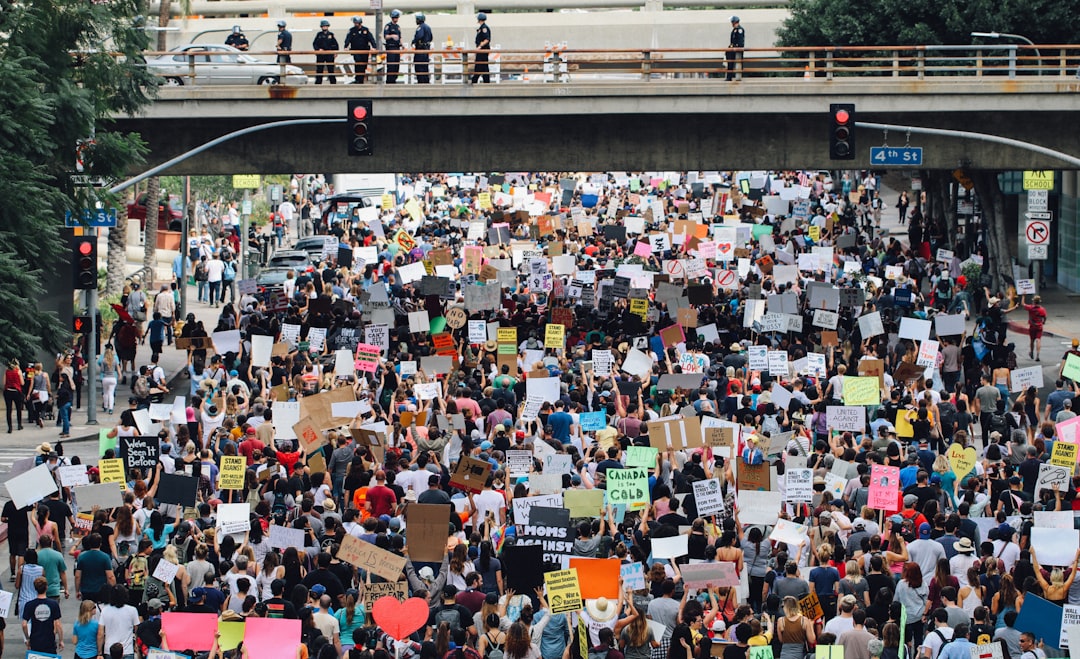The Silver Bullet Fantasy
On committing ourselves to long-term change
It’s been popping up in all sorts of ways this past week, and really this whole summer. People saying “if only UPS workers had gone on strike” we would have had the general strike that would solve everything. Or “now that these MAGA clowns are locked up” the country will course correct. Or conversations about how this third party candidate or that third party candidate is “the answer.” Now don’t get me wrong, I would love for the Teamsters and most unions to be more militant, I’m glad Trump and his cadre might actually face a consequence for once in their lives, and I think that if we somehow had a very left wing president it would be a good thing. But that’s not what I want to write about today. I want to write about the tendency towards wishful thinking and the hope that so many of us place in silver bullets. And about a better way to approach change.
The first point I hope to emphasize is that there is no one maneuver, no one action, no one moment that will correct systems which have been embedded for centuries. Freeing ourselves from the longing for a sudden, magical cure would go a long way towards building the organizations and the movements we need to actually change our country and society.

I’m sure this vein of thinking has been around for some time. It makes particular sense that in recent decades, as Reagan conservatism wreaked havoc on much of the organized left, the labor movement declined, and neoliberalism rose; a whole lot of institutional knowledge and radical culture was lost. Most people today simply don’t have much of familiarity with the nuts and bolts of being a union member, for example, and the culture of solidarity similarly needs to be rebuilt and is being rebuilt as we speak. This period also coincided with an extended downturn in the number of people involved in communal organizations, with increasingly fractured communities and a growing culture of consumerism and individualism changing how people spend big chunks of our time. All of the above, and more, means that today tons of people find ourselves isolated and depoliticized. Many of us are working to change that, but I think we can forget just where our starting line is. The past decade has seen a resurgent left flank in the American political arena, but we’re starting from a tough spot.
One of the consequences of the U.S. left being so ‘young’ or needing to begin from somewhere near square one is that a lot of us pursue silver bullets. What I’m saying here is a rough, oversimplified outline, but I think it’s fairly clear that in our society there’s a tendency towards instant gratification and quick fixes, and when combined with lots and lots of people being new to radical politics we often see people being drawn to one instantaneous solution or another. It’s a great thing to see people flocking to the left, but this silver bullet fantasy so many of us hold is a phase that must be worked through, and it must be done in such a way that we don’t end up as jaded cynics who are endlessly critical and rarely constructive.
Earlier this year there were mass protests in France as people rebelled at pension reform that would effective raise the retirement age from 62 to 64. Almost instantly the discourse across American social media, and much of conventional media, became about whether or not such an uprising could happen here. And people focused in on the culture of protest and riots and policing, with almost no airtime given to the organizing, union structure, and political culture that differs significantly between the two countries. Similarly, when Peruvians and Ecuadorians held mass general strikes over the last year or so, people call for a general strike in the United Sates. And each time that call went out, again on social media, long-time organizers replied that it would take a massive amount of coordination which simply isn’t possible at the moment combined with clear demands that we currently have no clear vehicles to determine and articulate, in addition to just millions more people being organized, to have anything near a general strike in this country. It would take a dramatic and needed jump in the union movement, more mutual aid, more political education, and so on and so forth. Yet the fantasy persists. The general strike, the mass uprising at the right moment, that one presidential candidate—these ideas appear vastly different on the surface, and yet all are united by a way of thinking about change as being driven by a silver bullet.

It’s my belief that the U.S. left growing up means letting go of the idea of sudden overnight transformation. That doesn’t mean there won’t be important spontaneous uprisings. The George Floyd protests in the summer of 2020, for instance, changed the discussion about policing in an vital way and radicalized millions of people. Many young people organizing today trace their path directly back to what erupted three summers ago, and that is invaluable. Yet we have also seen a backlash in the form of increased police budgets, a manufactured crime panic, and a sudden spurt of local governments building Cop Cities (massive repression training centers) in case people start flooding the streets in protest of murderous police once again. And people have resisted this backlash in many ways, seeking to demonstrate that the real crime numbers are vastly different from what the fear-mongers would have you think, continuing the push to defund the police, and of course building a powerful Stop Cop City movement that has demonstrated overwhelming support at Atlanta city council hearings, through its signature campaign, and hopefully soon on the ballot in a public referendum. But I think its fair to say that in many ways we weren’t ready for the backlash. This dramatic swinging of the pendulum, from the powerful mass displays in the streets to being on the defensive as the forces of reaction push back is, to me, a perfect illustration of how we cannot place our hope just in moments of spontaneous combustion, or in any single silver bullet.
Instead, we have to build for the long term. We have to understand that while certain institutions and systems need to be torn down, we can’t win without building alternative systems in their place and organizing the mass movement and the working class power necessary to create these systems that can meaningfully challenge and repalce those of the status quo. This sort of organizing and building is a long-term proposal, and, in my opinion, it is the only way we get the just and equitable and livable country and the world we need to see. But I don’t want this to be vague, so I’ll get specific. Here are six ways we can organize long-term, and move from hoping for one perfect solution to organizing a powerful working class and building alternative systems.
1. Militant and democratic unions
We need far, far more unions. 2023 has seen a spike in newly organized workers, the most in over 20 years if the trend from the first half of the year continues. But we need still more. And the success of unions in delivering for the workers that compose them is the single most effective labor propaganda. To that end we need militant and democratic unions that fight for workers. The Teamsters and United Auto Workers have both recently been reformed, and in three weeks we may see autoworkers strike at Ford, General Motors, and Stellantis. Their president Shawn Fain is talking a huge game, openly speaking about class war, and gunning for 40% raises (and much more). Only time will tell what comes next, but we need to reform our unions as we encourage more workers to unionize. If we can get millions more workers into radical unions in the coming years the labor movement can be a force to be reckoned with and can be a key pillar in the push for change.
Here’s a link to something I’ve written on this topic before, and a link to “Class Struggle Unionism,” a fantastic book.
2. Worker co-ops
In the long-run we need workers to own our workplaces. And there’s no reason we can’t be building that now. There are already many worker owned co-ops, but not nearly enough. If this is where you feel called to devote your time and energy, practicing democracy in the workplace and showing other people that the socialist model can work on the scale of their job is hugely important, both to the workers at a given business and to others who see what is possible.
Here’s a link to a great resource on building worker owned co-ops.
3. Tenant unions and eviction defense organizations
The housing crisis has reached untenable levels. After pandemic eviction protections were prematurely rolled back, and with private equity buying up residential housing across the country, the cost of housing is higher than ever and the number of homeless people in this country is skyrocketing once again. So organize with your neighbors. In many places there are already tenant unions working to keep people housed through policy, through rent strikes, and through eviction defense. We need to work together to struggle against landlords and build a world where housing is seen as a non-negotiable right rather than a commodity.
Here’s a link to everything tenant union.
4. Abolitionist organizations
The police stand against every movement for change. Just yesterday I saw them attacking climate protesters. They enforce evictions. They militantly repress anyone who says they should face serious consequences for killing people. Moreover their budgets eat into the funds our cities have to feed, house, and educate. Whether its organizing to defund police or organizing alternatives to calling the cops, or both, this is crucial long-term work for us to pour ourselves into.
Here’s a link to some of my previous writing on this, and another link to an organization with countless great abolitionist resources.
5. Radical popular education
Education should really be woven into all of our organizing. For example the abolitionist group I have primarily organized with over the past year included a reading group, and we tried to include know-your-rights trainings at certain events, plus conversations about defund and policing were woven into much of what we did. But I want to emphasize learning together as its own category because there’s so much long-term work that goes into this. If we concede that many of us grew up without radical politics and with a mindset skewed by capitalism and racism and other dominant structures, and in an environment where the left was so weakened that the Overton window in this country is shifted dramatically to the right, it becomes easy to see that popular education in our communities must be part of what we all engage in. We need years of unlearning, and learning. And it’s also a fun and beautiful way to strengthen organizations and communities.
Here’s an article I wrote that goes more in depth, and here’s a link to the seminal work on the topic “Pedagogy of the Oppressed” by Paulo Freire.
6. Dual Power
There’s so much more that could be said here. There are so many ways to engage in needed long-term organizing on the left. But I chose to have this be the last category because it sums up a huge chunk of what I think we should aim for. Dual power means the left building up its own systems and networks and resources outside capitalism and the state. We need to build worker power from the ground up, we need to build alternatives to policing from the ground up, and we need to dedicate ourselves to this work over years and decades. That’s not to say we shouldn’t use the mechanisms of government at all. I believe that the playing field is currently so skewed that we need to do whatever we can to challenge and change the terms of engagement. I personally devote relatively little of my energy to elections, other than on the local level where I plan to go all out to oust Eric Adams and elect a New York City council that actually wants to defund the police, but I do think we need an inside-outside strategy where some folks work to change conditions at the governmental level and others focus more on building power on the outside. Ultimately I focus more on the outside because I believe that if the unions are strong enough, if our dual power institutions are strong enough, if we have millions of people engaged and organized on the left we will better be able to force the political changes we need, and build systems and structures ourselves where necessary.
Here’s a primer on dual power.

Conclusion
This is not meant to be a comprehensive document. I have not listed nearly all of the ways we can help build the long-term transformation we need to see. I haven’t discussed the amazing climate organizations growing more radical and powerful by the day. I haven’t talked about the psychological or spiritual dimensions along which people are challenging the status quo, and the internal change that many leftists need undergo. I haven’t talked about movements to seize land or get land back, past and present, that I think we must learn from and be part of and support. What I hope I have shown is that realizing there isn’t just one silver bullet that’ll save us is not the end, but the beginning. When we see that sustainable radical change won’t simply pop up overnight we don’t need to grow cynical and jaded, instead we can get to work. We can begin to learn and organize and transform ourselves as we work to transform the world. I hope this piece, and the many options for how we can plug in to all the work that needs doing makes this all feel more possible, not less. But I also hope we approach our work with clear eyes. The systems we need to uproot and cast aside have grown entrenched for centuries, and will take time to overcome. A sober assessment of the problem is the first step, and I hope I’ve given a sober assessment of some portion of the solution here as well. So good luck—let’s get to it.


This is exactly the awareness that must the foundation of all organizing efforts and movements towards progressive change. Nearly every wave of cynicism comes from expecting this or that politician or action to bring about the entirety of our needs when in fact everything has mixed results. It is the strength of knowing we are building a long game that replaces it with strength and perseverance essential to success.
👏👏👏 appreciate the specifics! I look at art as a part of #5 too.